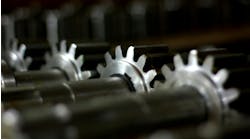Fasteners are some of the most important parts of an assembly as they hold the entire assembly together and facilitate the interaction between the individual components. Ideally, the selected fasteners are simple to assemble, provide a quality product for the intended lifetime of the assembly, and yield the overall lowest cost of the assembly taking into account the entire manufacturing process.
Press Fit Pin Types
Among press fit pins, there are two general categories: Solid Pins and Spring Pins.
Solid Pins can have a smooth, uninterrupted surface (such as dowels) or they may be designed with retention features such as knurls and barbs. All Solid Pins are retained by displacing/deforming the host material.
Conversely, Spring Pins retain themselves by exerting a radial force (tension) against the hole wall after installation. There are two different types of Spring Pins: Slotted Pins and Coiled Pins.
Slotted Spring Pins are general-purpose, low-cost pins typically recommended for noncritical assemblies. Oftentimes, Slotted Pins are used in applications where they are manually installed into mild to hardened steel components. Slotted Pins have a gap designed for the pin to flex during installation allowing the pin to absorb varying hole tolerance.
Coiled Spring Pins are available in light, standard, and heavy-duty to enable the designer to choose the optimum combination of strength, flexibility, and diameter suited for varying host materials and performance requirements. Coiled Pins have 2-1/4 coils of material that enable the pin to flex both during installation to accommodate varying hole tolerance and after installation to dampen shock and vibration to prevent hole damage.


